Text
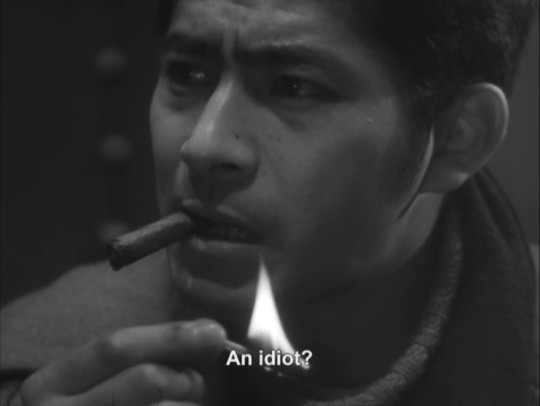
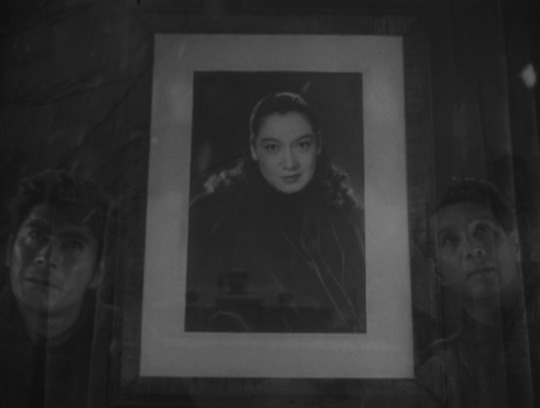

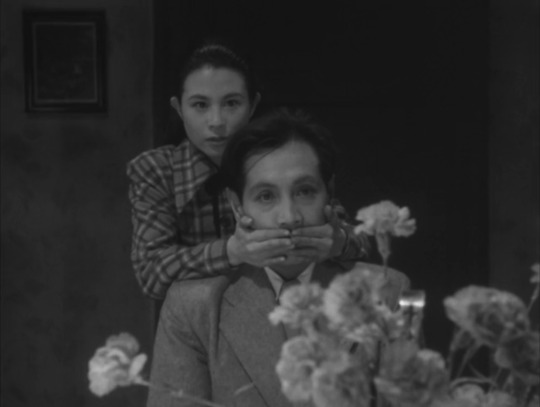

Akira Kurosawa’s “白痴” (The Idiot) May 23, 1951.
#Akira Kurosawa#白痴#The Idiot#The Idiot (1951)#Fyodor Dostoyevsky#Fyodor Dostoevsky#Dostoyevsky#Dostoevsky#Movie Adaptation#Adaptation#Russian Literature#Literature#19th Century Literature#19th Century Russian Literature
92 notes
·
View notes
Text

Fyodor Dostoyevsky’s “The Idiot” (1868–9).
#Fyodor Dostoyevsky#Fyodor Dostoevsky#Dostoyevsky#Dostoevsky#The Idiot#1868#1869#1800s#19th Century#19th Century Literature#19th Century Russian Literature#Russian Literature#Literature#Finished!
3 notes
·
View notes
Text
“Day and night I am weighed down, as if by some devil, by the thought that my life is irrevocably gone. I have no past, it has been stupidly squandered on rubbish, and the present is terrible in it’s absurdity. You have here my life and my love; where am I to put them, what am I to do with them? My feelings are going to waste, like a ray of sunshine falling into a chasm, and I myself am going to waste.”
—Anton Chekhov “Uncle Vanya” Act Two (1897).
#Anton Chekhov#Uncle Vanya#1897#1899#1800s#19th Century#19th Century Literature#19th Century Russian Literature#Russian Literature#Literature#Theater#Quote
12 notes
·
View notes
Text

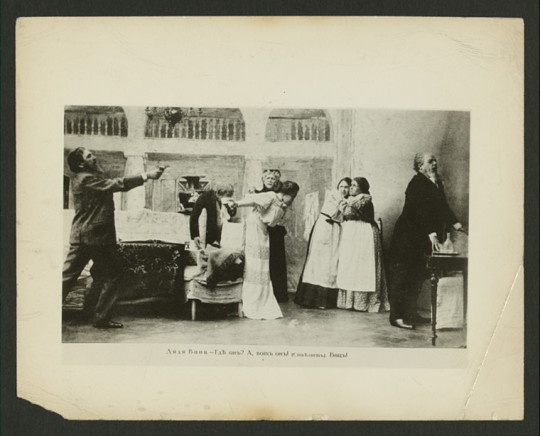

The Moscow Art Theatre’s production of Anton Chekhov's "Uncle Vanya" 1899.
#Anton Chekhov#Uncle Vanya#1987#1899#1800s#19th Century#19th Century Literature#19th Century Russian Literature#Russian Literature#Literature#Theater#Play
2 notes
·
View notes
Text
“Sometimes he felt like going away somewhere, vanishing completely, and he would really have liked a gloomy, deserted place where he could be alone with his thoughts, and no one would know where he was. Or at least be at home, on the veranda, but with no one else there, neither Lebedev nor Lebedev’s children; to throw himself on his sofa, bury his head in his pillow and lie like that for a day, a night, another day. At times he dreamed of the mountains, and one particular spot in the mountains which he always liked to remember, and where he had been fond of going when he had lived there, looking down from there at the village, the barely visible white thread of the waterfall below, the white clouds, the old abandoned castle. Oh, how he would have liked to be there now and think of only one thing — oh! all his life about that one thing — it would be enough for a thousand years! And to be forgotten, forgotten here entirely. Oh, that was what was needed, it would be better if no one knew him at all and this whole vision was simply something in a dream. But wasn’t it all the same, whether it was in a dream or waking?”
—Fyodor Dostoevsky “The Idiot” Part Three, Chapter 2 (1868).
#Fyodor Dostoevsky#Fyodor Dostoyevsky#Dostoevsky#Dostoyevsky#The Idiot#The Idiot (1868)#1868#Russian Literature#Literature#Quote
28 notes
·
View notes
Text

Vincent van Gogh "Bulb Fields (Flower Beds In Holland)" 1883.
"Reclaimed from sea-bottom mud containing the perfect mix of sand and clay for growing flowers. The Hague in May was a veritable Eden: flowers bloomed in unrivaled abundance on roadsides and canal banks, in parks and gardens, on balconies and verandas, in window boxes and doorstep pots, even on the barges that glided by. Perpetual moisture from tree-shaded ponds and canals "seemed every morning to paint with a newer and more intense green," wrote one enchanted visitor."
—Van Gogh: The Life by Steven Naifeh and Gregory White Smith
#Vincent van Gogh#Bulb Fields#Bulb Fields (1883)#Flower Beds in Holland#1883#Painting#Art#Quote#Van Gogh: The Life#Steven Naifeh#Gregory White Smith#2011#Currently reading...
1 note
·
View note
Text
“[Mary Jo] Webb walked me outside, onto the front porch. It was dusk, and the fringes of the sky had darkened. The town and the street were empty, and beyond them the prairie, too. “This land is saturated with blood,” Webb said. For a moment, she fell silent, and we could hear the leaves of the blackjacks rattling restlessly in the wind. Then she repeated what God told Cain after he killed Abel: “The blood cries out from the ground.’”
—David Grann “Killers of the Flower Moon: The Osage Murders and the Birth of the FBI” April 18, 2017.
#David Grann#Killers of the Flower Moon: The Osage Murders and the Birth of the FBI#Killers of the Flower Moon#2017#2010s#Quote
3 notes
·
View notes
Text

David Grann’s “Killers of the Flower Moon: The Osage Murders and the Birth of the FBI” April 18, 2017.
#David Grann#Killers of the Flower Moon: The Osage Murders and the Birth of the FBI#Killers of the Flower Moon#2017#2010s#Osage#Osage Nation#Reign of Terror#American History#History#Mystery#Investigative Journalism#Historical Non Fiction#Non Fiction#5/5
1 note
·
View note
Text
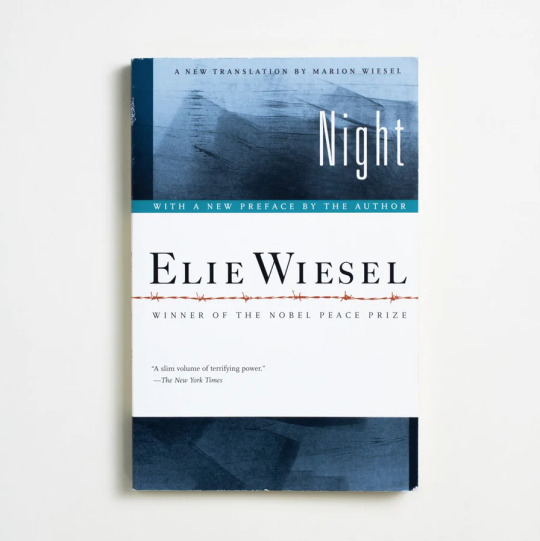
Elie Wiesel's "Night" published, 1956.
"A slim volume of terrifying power"
2 notes
·
View notes
Quote
I remember: there was an unendurable sadness; I even wanted to cry; I was constantly astonished and anxious: it had a dreadful effect on me that all this was foreign; that I understood. The foreign-ness crushed me. I completely awoke from this darkness, I remember, in the evening, at Basle, on entering Switzerland, and what woke me up was the hee-hawing of a donkey in the town market. The donkey gave me a dreadful shock and for some reason greatly appealed to me, and at the same time it was as if everything in my head suddenly cleared.'
'A donkey? That's strange,' the general's wife observed. 'Though actually, there's nothing strange about it, one of us might easily fall in love with a donkey,' she observed, with an angry glance at the laughing girls. 'It happened in mythology. Continue, prince.'
'Since then I've had a dreadful soft spot for donkeys. There's even a kind of sympathy between us. I began to make inquiries about them, as I'd never seen them before, and was at once convinced that they're the most useful animal, hard-working, strong, patient, inexpensive and long-suffering; and through that donkey I suddenly began to like the whole of Switzerland, so that my earlier sadness passed completely.'
Fyodor Dostoyevsky’s “The Idiot” Part One, Chapter 5.
#Fyodor Dostoyevsky#Fyodor Dostoevsky#Dostoyevsky#Dostoevsky#The Idiot#The Idiot (1868)#1868#19th Century Literature#19th Century Russian Literature#Russian Literature#Quot#Au Hasard Balthazar#Robert Bresson#EO#Jerzy Skolimowski
31 notes
·
View notes
Quote
You know, Afanasy Ivanovich, they say that something of this kind happens among the Japanese,' said Ivan Petrovich Ptitsyn. 'The man who has been insulted apparently goes up to his insulter and says to him: "You've insulted me, so I've come to slit open my belly in front of you," and with these words he really does slit open his belly in front of his insulter's eyes and, it would seem, experiences a sense of extreme satisfaction, as though he had really obtained his revenge. There are strange characters in the world, Afanasy Ivanovich!'
Fyodor Dostoevsky’s “The Idiot” Part One, Chapter 16.
#I just finished watching Kobayashi's 'Harakiri' yesterday#Harakiri is the action described in the quote above#And I just read this paragraph about an hour ago#Strange coinkydink!#Fyodor Dostoevsky#Dostoevsky#The Idiot#The Idiot (1868)#1868#Russian Literature#Literature#19th Century Literature#19th Century Russian Literature#Quote#Harakiri#Masaki Kobayashi
4 notes
·
View notes
Photo
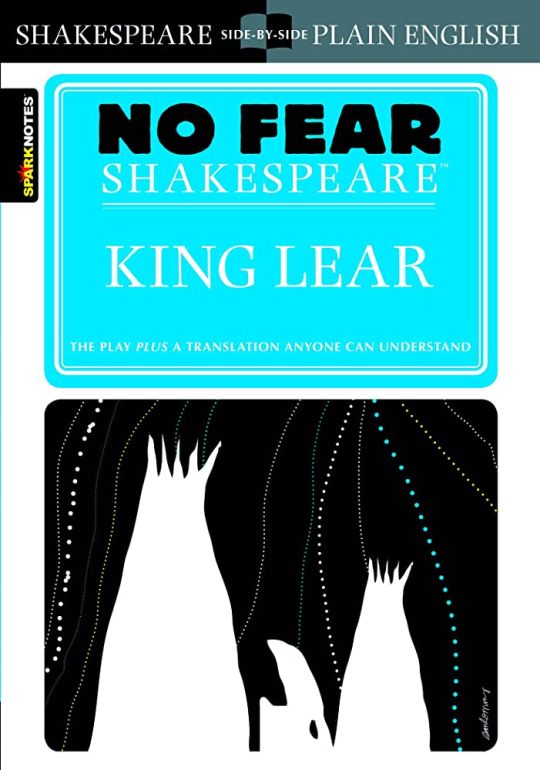
William Shakespeare’s “King Lear” ca. 1606.
1 note
·
View note
Photo

King Lear with the body of Cordelia, illustration by Friedrich Pecht, 1876.
11 notes
·
View notes
Photo

Hayao Miyazaki’s “Shuna’s Journey” November 2022 (English Translation).
12 notes
·
View notes
Photo

Hayao Miyazaki’s “Shuna’s Journey” June 15, 1983.
14 notes
·
View notes
Photo

Penguin Classics edition of Fyodor Dostoevsky’s “The Idiot” (1868).
#Penguin Classics#Fyodor Dostoevsky#Dostoevsky#The Idiot#The Idiot (1868)#1868#19th Century Literature#19th Century Russian Literature#Russian Literature#19th Century#Literature
1 note
·
View note
Photo



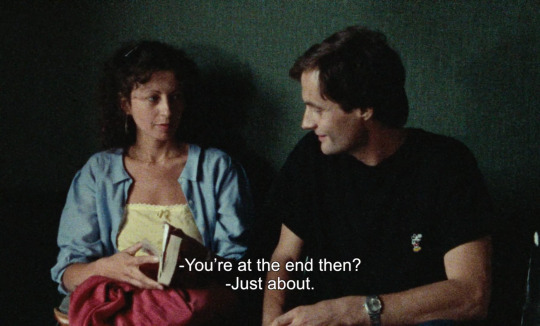

Éric Rohmer’s “Le Rayon Vert” (The Green Ray) March 9, 1986.
#Arrived in the mail yesterday#Fyodor Dostoevsky#Dostoevsky#The Idiot#The Idiot (1868)#1868#Literature#Russian Literature#Film Reference#Reference
95 notes
·
View notes